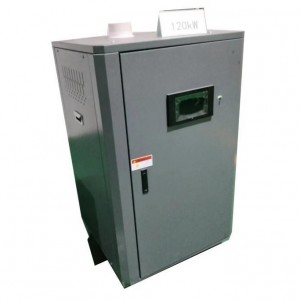12월 . 09, 2024 23:07 Back to list
Exploring the Benefits of Cast Aluminum Components in Modern Manufacturing Processes
Understanding Cast Aluminum Parts Applications and Advantages
Cast aluminum parts are integral to a variety of industries, offering distinct advantages over other materials. The versatility of aluminum, combined with the efficiency of casting processes, makes it a popular choice in aerospace, automotive, construction, and consumer goods. This article delves into the characteristics, benefits, and common applications of cast aluminum parts.
What is Cast Aluminum?
Cast aluminum refers to aluminum that has been melted and poured into molds to create specific shapes and components. The casting process allows for intricate designs and complex geometries that would be difficult or impossible to achieve with other manufacturing methods. There are several types of casting processes, including sand casting, die casting, and investment casting. Each method offers unique advantages depending on the application and volume required.
Characteristics of Cast Aluminum Parts
1. Lightweight One of the most significant advantages of aluminum is its low density. Cast aluminum parts are significantly lighter than equivalent parts made from steel or iron, making them ideal for applications where weight reduction is crucial, such as in aircraft and automobiles.
2. Corrosion Resistance Aluminum naturally forms a protective oxide layer when exposed to air, which makes it resistant to corrosion. This characteristic is invaluable in environments where exposure to moisture and chemicals can lead to degradation of materials.
3. Excellent Strength-to-Weight Ratio Cast aluminum parts exhibit impressive strength despite their lightweight nature. This high strength-to-weight ratio allows designers to innovate freely, creating components that can withstand substantial stresses while minimizing weight.
4. Thermal and Electrical Conductivity Aluminum has excellent thermal and electrical conductivity, making it suitable for applications requiring efficient heat dissipation or electrical conduction—such as in heat sinks or electrical housings.
5. Recyclability Aluminum is highly recyclable without loss of quality. The ability to recycle cast aluminum parts contributes to sustainability efforts and reduces environmental impact.
Advantages of Using Cast Aluminum Parts
1. Design Flexibility The casting process can accommodate complex shapes and intricate designs, which optimizes the performance and functionality of components. This flexibility allows engineers to create tailored solutions for specific applications.
cast aluminum part

2. Cost-Effectiveness While the initial cost of tooling for casting may be high, the economies of scale realized in high-volume production often offset these costs. Cast aluminum parts benefit from lower production costs in mass production runs.
3. Short Lead Times Compared to machining processes that may require extensive finishing, the casting process can significantly reduce lead times. Once the mold is created, producing parts can be rapid, which is crucial for industries with tight deadlines.
4. Consistent Quality Modern casting techniques, combined with quality control measures, ensure that cast aluminum parts have consistent dimensions and properties. This reliability is vital in maintaining performance standards across products.
Applications of Cast Aluminum Parts
The applications for cast aluminum parts are extensive and varied.
- Aerospace In the aerospace industry, cast aluminum components are used for structural frames, engine casings, and other essential parts that require a combination of lightweight and strength.
- Automotive The automotive sector utilizes cast aluminum for engine blocks, transmission cases, and wheels. The reduced weight from aluminum parts contributes to fuel efficiency and performance.
- Consumer Electronics Many electronic devices, such as laptops and smartphones, feature cast aluminum housings. The material’s aesthetic appeal, combined with its protective qualities, enhances both functionality and design.
- Construction In construction, cast aluminum parts are used in architectural elements, window frames, and supports, providing durability and resistance to the elements.
Conclusion
Cast aluminum parts play a critical role in modern manufacturing across various industries. Their lightweight, strength, and corrosion resistance offer significant advantages that will continue to drive innovation and efficiency. As technology advances and demand for sustainable materials increases, the role of cast aluminum is poised for further growth, ensuring its relevance in future advancements and applications.
-
Durable Cast Steel Concrete Pipe Mold Bottom Rings & Base Trays
NewsAug.23,2025
-
Centrifugally Cast Iron Water Main Pipe for Reliable Mains
NewsAug.22,2025
-
Durable Centrifugally Cast Iron Water Main Pipe
NewsAug.11,2025
-
Centrifugally Cast Iron Water Main Pipes for Reliability
NewsAug.10,2025
-
High-Quality Centrifugally Cast Iron Water Main Pipes
NewsAug.09,2025
-
Durable Cast Iron Water Main Pipe & Drainage Solutions
NewsAug.08,2025


